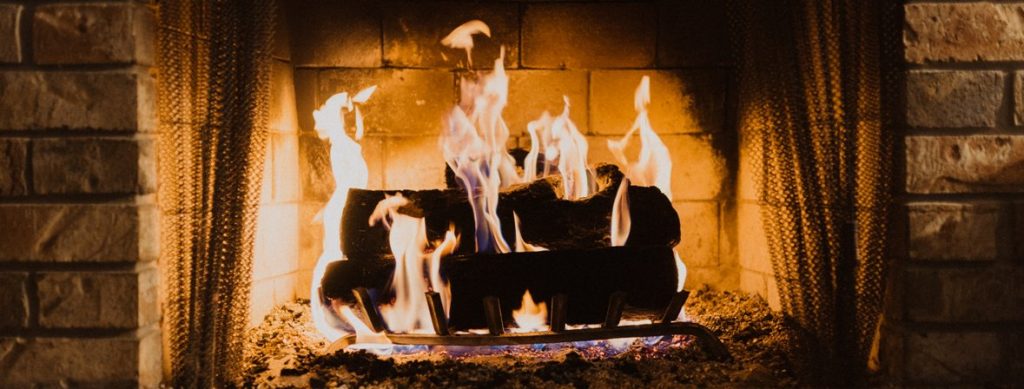German Sayings + Expressions 27: Feeling Old Posted by Sten on Jan 9, 2020 in Culture, Language
It’s 2020! Finally, a new Jahrzent (decade) – but for a lot of people that second 2 in the year gives them a feeling of being… old. Perhaps rightfully so. The Mauerfall (Fall of the Berlin Wall), which sparked German reunification? Almost 31 years ago! The end of the Zweiter Weltkrieg (Second World War)? 75 years this year. 75! Such a new year can really put things into perspective. And today, you’ll get a Sprichwort (Saying) and Ausdruck (expression) to bring that feeling to life!
For older posts, please follow this link.
Alt Holz brennt besser als junges
Literally: Old wood burns better than young wood
You know, maybe you shouldn’t worry too much about being or getting old. As we say in Germany, alt Holz brennt besser als junges. What about all the things you learn over the years, the Weisheit (wisdom) you gain? Or the Abenteuer (adventures) and good things that happened in your life so far? There’s a lot of good things to look back at.
And so, just like wood that was stored longer, and is therefore dryer and burns better, being old is better!
Let’s see how that’s used in a conversation:
Mensch, es ist schon 2020! Ich werde echt alt…
– Ach, Niko, mach’ dir keine Sorgen! Du bist ja noch echt jung mit 32 – und vergiss nicht: Alt Holz brennt besser als junges!
Da hast du wohl Recht, Erika. Danke!
(My god, it is 2020 already! I am really getting old…
– Oh, Niko, don’t worry! You’re really still quite young at 32 – and don’t forget: Old wood burns better than young wood!
I suppose you’re right, Erika. Thanks!)
On to the Ausdruck!
(Ganz schön) alt aussehen
Literally: To look (quite) old
To look like a (complete) fool
The thing people complain about most after blowing out yet another new candle on their birthday cake is how they start getting wrinkly, and everything gets harder than a few years ago… Man fängt an, alt auszusehen (One starts to look old)! But the Ausdruck behind this is a little different.
While it can mean “to look old”, most people will think about the meaning of the Ausdruck first. Alt aussehen has really become commonplace, and it is kind of a hit at being old. When you’re old, you start feeling schwach (weak), and you may not be as eindrucksvoll (impressive) as when you were young. And that’s what alt aussehen can mean, and also where this Ausdruck got its meaning. But it goes further – also getting yourself in a schwierige Lage (difficult situation) makes you look old in German. Here’s an example:
Andy sieht ja ganz schön alt aus an dem Berg. Erst kam er noch so einfach hoch, und jetzt sitzt er da fest.
– Das schafft er schon. Andy hat schon ganz andere Hürden überwunden.
(Andy looks like a complete fool on that mountain. First he got up there so easily, and now he’s stuck.
– He’ll make it. Andy has already overcome much bigger hurdles.)
Here, Andy simply looks bad because he’s not performing so well. It’s not really mean, it’s more to call out that he may have taken on a challenge too big. But this is only slightly pejorative.
Als bei der Oscarverleihung die Namen falsch herum genannt wurden, sah der Moderator ziemlich alt aus.
(When at the Oscars, the names were called the wrong way around, the host looked like quite the fool.)
Here, the English “fool” works better, since the host looks bad, but also looks like he has no idea what he’s doing.
What you can take away from this is that alt aussehen is a pretty common thing to say, and it can range from quite insulting to only slightly insulting.
Have you heard this Sprichwort and Ausdruck before? Do you have similar ones in your language? How do you feel about the new Jahrzent? Let me know in the comments below!

Build vocabulary, practice pronunciation, and more with Transparent Language Online. Available anytime, anywhere, on any device.






Comments:
Joe Genovese:
“Alt Holz brennt besser als junges.”
I agree with “junges”, asl Holz is neutral taking “das”.
Hence, shouldn’t it be “Altes Holz”, rather than “Alt Holz”?
I’m not saying you’ve made a mistake.
Could it be that since it’s an expression, “what the People say”, then grammar has to take a back seat?
Sten:
@Joe Genovese Yes, you are absolutely correct! I should have clarified that.
It should – grammatically, that is – indeed be “Altes”. I tried to find versions where it was correct, but I suppose it is simply old, or born from colloquial use, where people perhaps use “alt Holz” over “altes Holz”.
So I suppose it goes back to “what the People say”, like you said.
Good find, thanks!